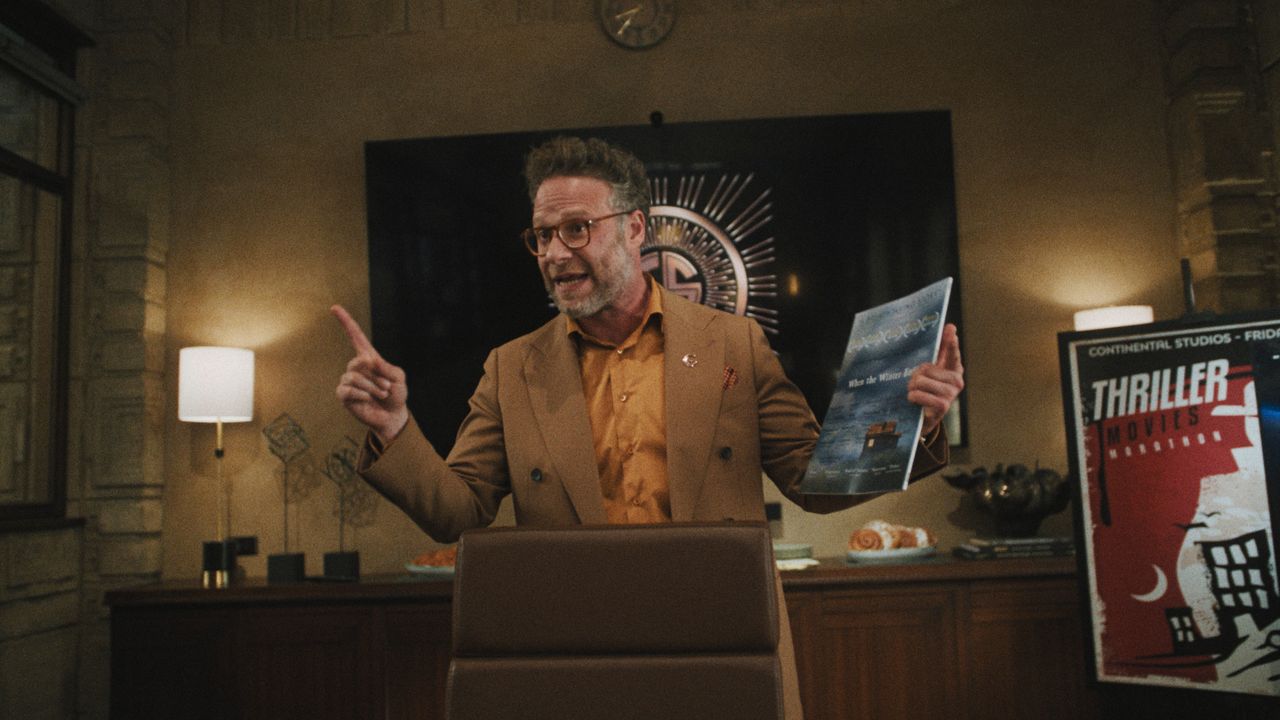What better time for a satire of Hollywood than right now, when America’s most iconic industry is in such a state of flux, confusion, and peril? No o
What better time for a satire of Hollywood than right now, when America’s most iconic industry is in such a state of flux, confusion, and peril? No one knows how to release a movie anymore; the internet is gobbling up audiences; politics has wormed its way into everything. We’re due for a razor-sharp and grimly amusing look at all those troubled mechanics, maybe with a dash of optimism thrown in here and there.
That, sadly, is not what you will find in The Studio, a high-profile fresh comedy series (premiering on Apple+ on March 26) from Seth Rogen and Evan Goldberg. Its premise is promising: Rogen stars as a studio executive, Matt, who finds himself somewhat improbably in the president chair when his longtime boss, Amy (Catherine O’Hara), is cruelly ousted by the company’s gonzo CEO, played by Bryan Cranston. The studio is at war with itself, stuck between the financial incentive to make huge, noisy IP movies that earn a billion dollars and the desire (shared by some, at least) to make critical, enduring cinema. Matt is a dreamer, but he’s also cynical and power hungry. In its pilot episode, The Studio sets up a kind of ethical drama in comedy form: we will watch as Matt loses himself to the horrid compromises of commercial art.
But what ensues is mostly just a zany and increasingly tiresome workplace comedy peppered with catchy celebrity cameos. There is impressive craft to the series, whose complicated Curb Your Enthusiasm-esque plot structures are laid out in energetic long takes. Too often, though, that craft is undermined by indolent contrivances, hoary tropes that feel well beneath the high stylistic ambition of the series. The calculation seems to have been that if the show makes enough references that Letterboxd and GoldDerby nerds will get—to CinemaCon, A24, the podcast The Town—then it’s insidery enough to be clever. But it’s not, in fact, enough to shoot a show like an Oscar-winning film (in this case aping the one-take real-time of Birdman) and have Martin Scorsese playing a whole arc on an episode. There should be some real meat to the series beyond that stuntery, some barbed arguments to be made, rather than just the goofy stuff of sitcoms.
Perhaps the central problem of The Studio is that Rogen’s character is such a bumbling, insecure oaf. He’s never once believable as a guy who worked his way up a particularly precarious ladder to the top. Sure, simple comedy can be mined from Matt making an ass of himself during a set visit (of a phony Sarah Polley movie—it is, at least, great to see Polley in front of the camera again). But the antics erode the show’s in-the-know credibility, which is meant to be a selling point of the series. Ditto a wheezy episode styled like a ’50s noir, or a wild night in Las Vegas in which people eat chocolate that they don’t know is laced with drugs. That’s a bit so creaky they did it in 80 for Brady. And it distracts from what could have been an captivating—and still humorous!—look at how a major industry showcase operates.
The Studio maybe couldn’t be too precise lest that alienate the more casual viewer; a series of this scale could not be sustained by only a niche audience. That’s the agonizing math of many a Hollywood production, a formula that seems more and more arduous to crack as viewers retreat from anything resembling a monoculture. So it’s maybe unfair to ding The Studio for trying to thread that particular needle; it’s just as much a victim of industry pressure as anything else.
What is consistently engaging about the show are its flashy aesthetics and its endless parade of cameos, which range from brief one-line bits to extended storylines. The list includes Polley, Scorsese, Ron Howard, Greta Lee, Olivia Wilde, Zac Efron, Paul Dano, Aaron Sorkin, Anthony Mackie, and more. Like Entourage before it, The Studio allows celebrities room to tease their public images while affirming their big-shot status. It’s mostly charming, though I wish some of the time spent on cameo wrangling had been devoted to cultivating the show’s core characters.

COMMENTS